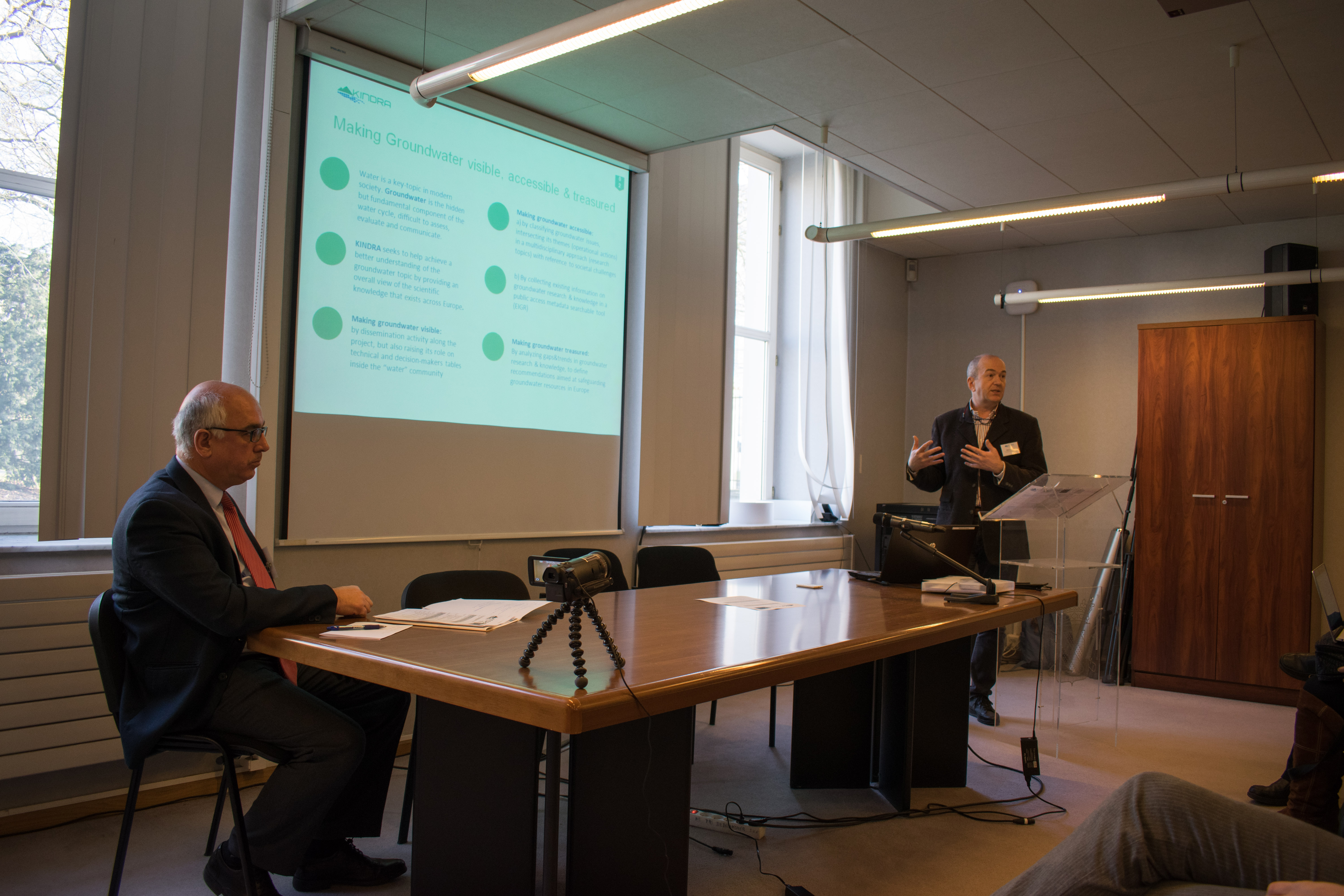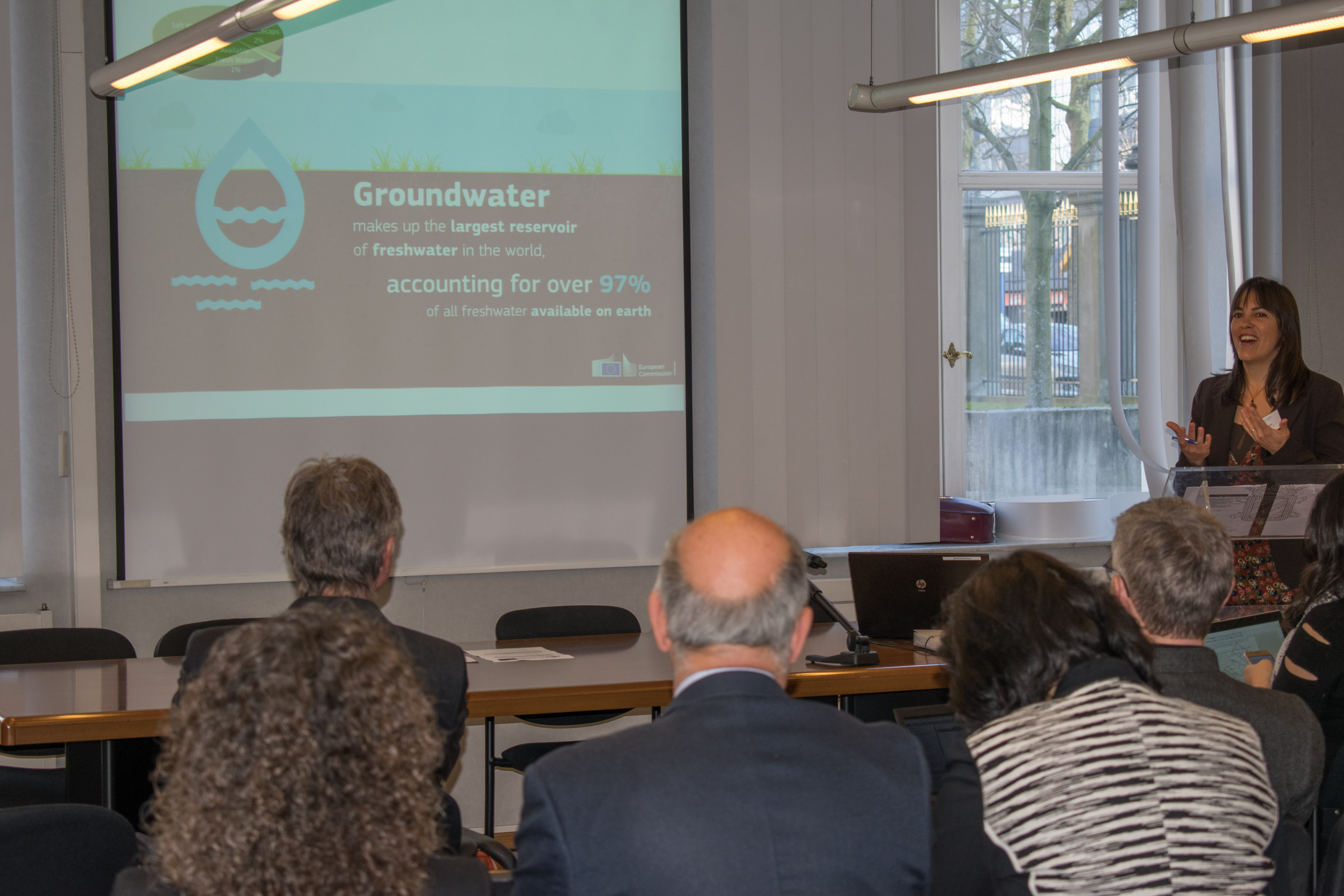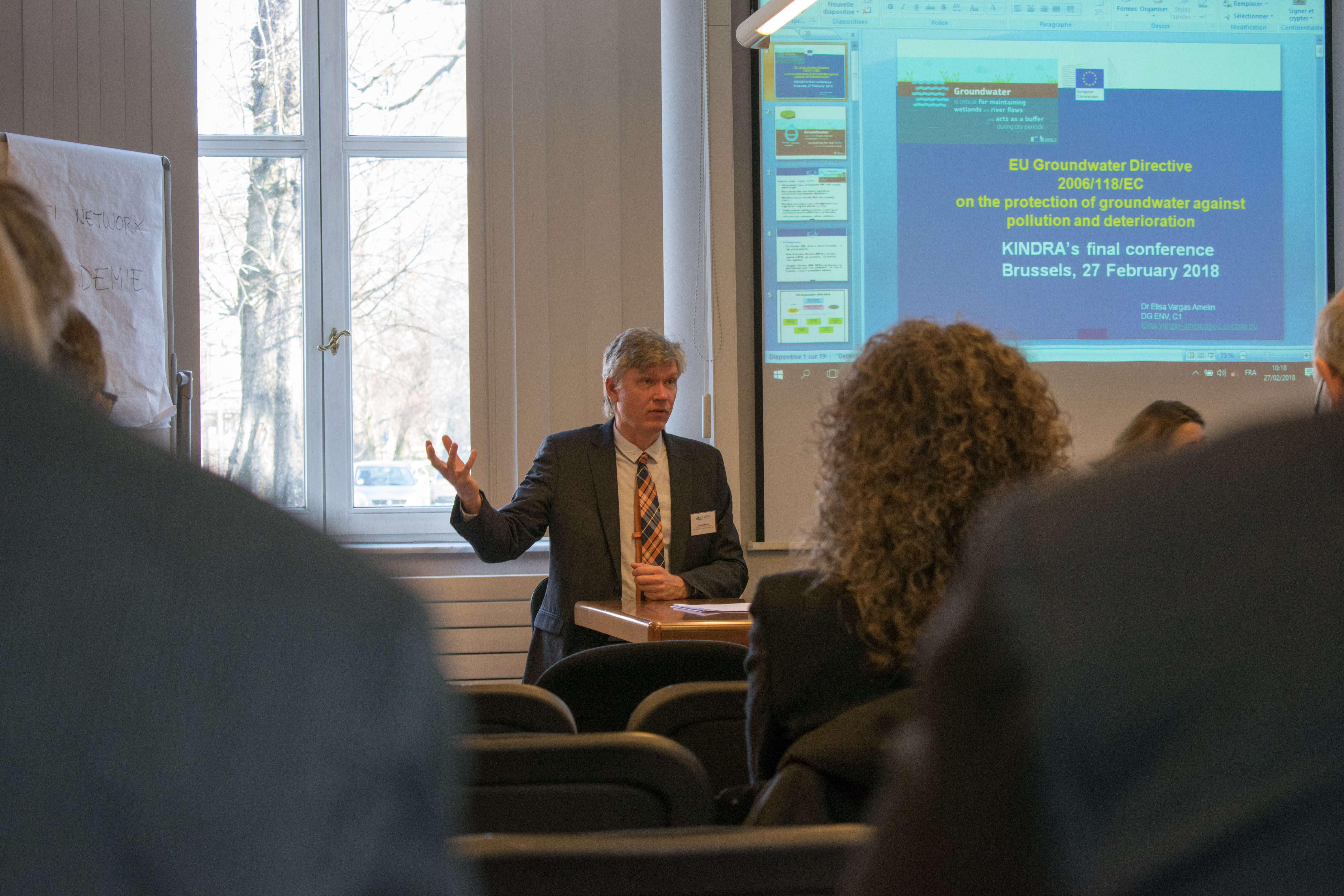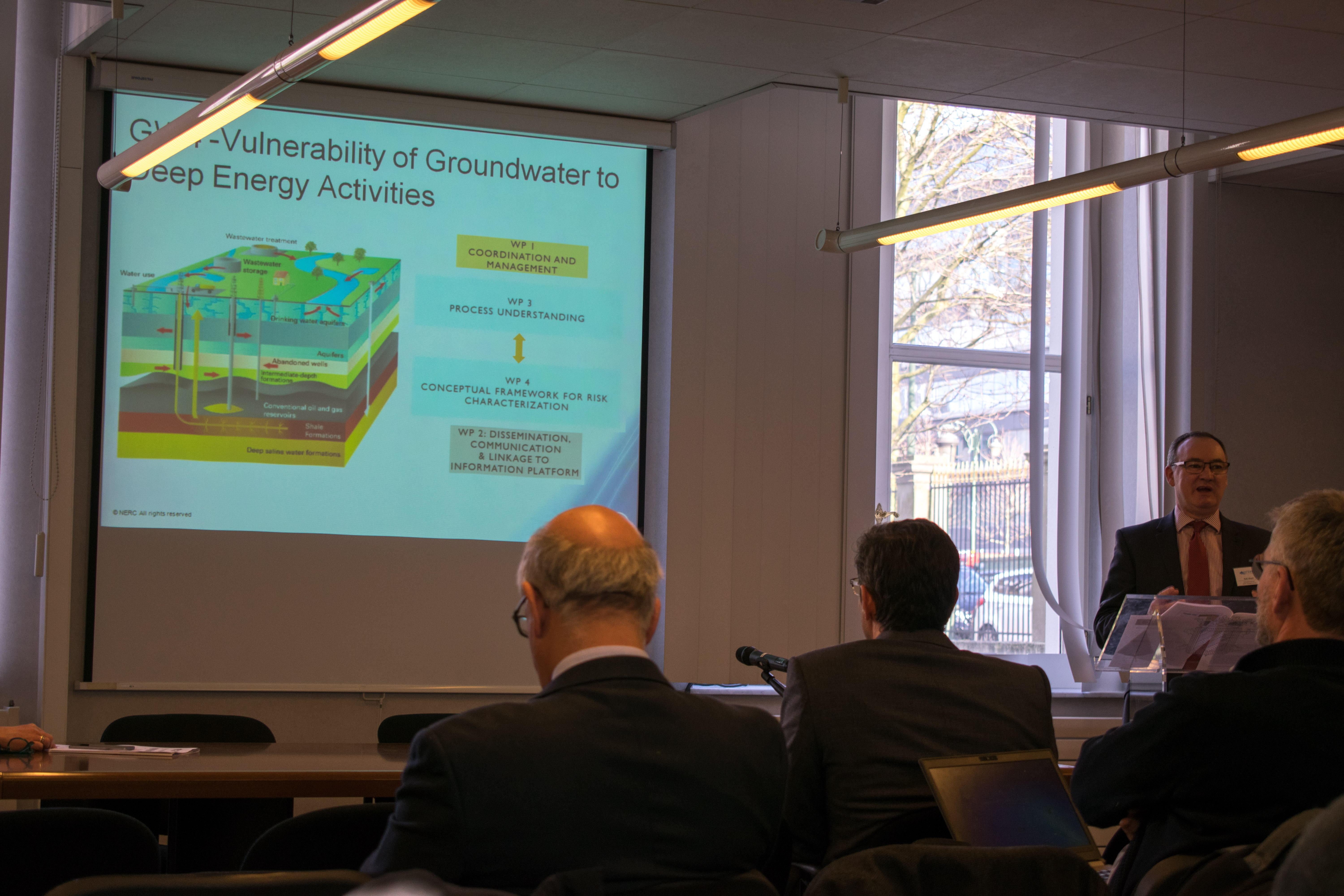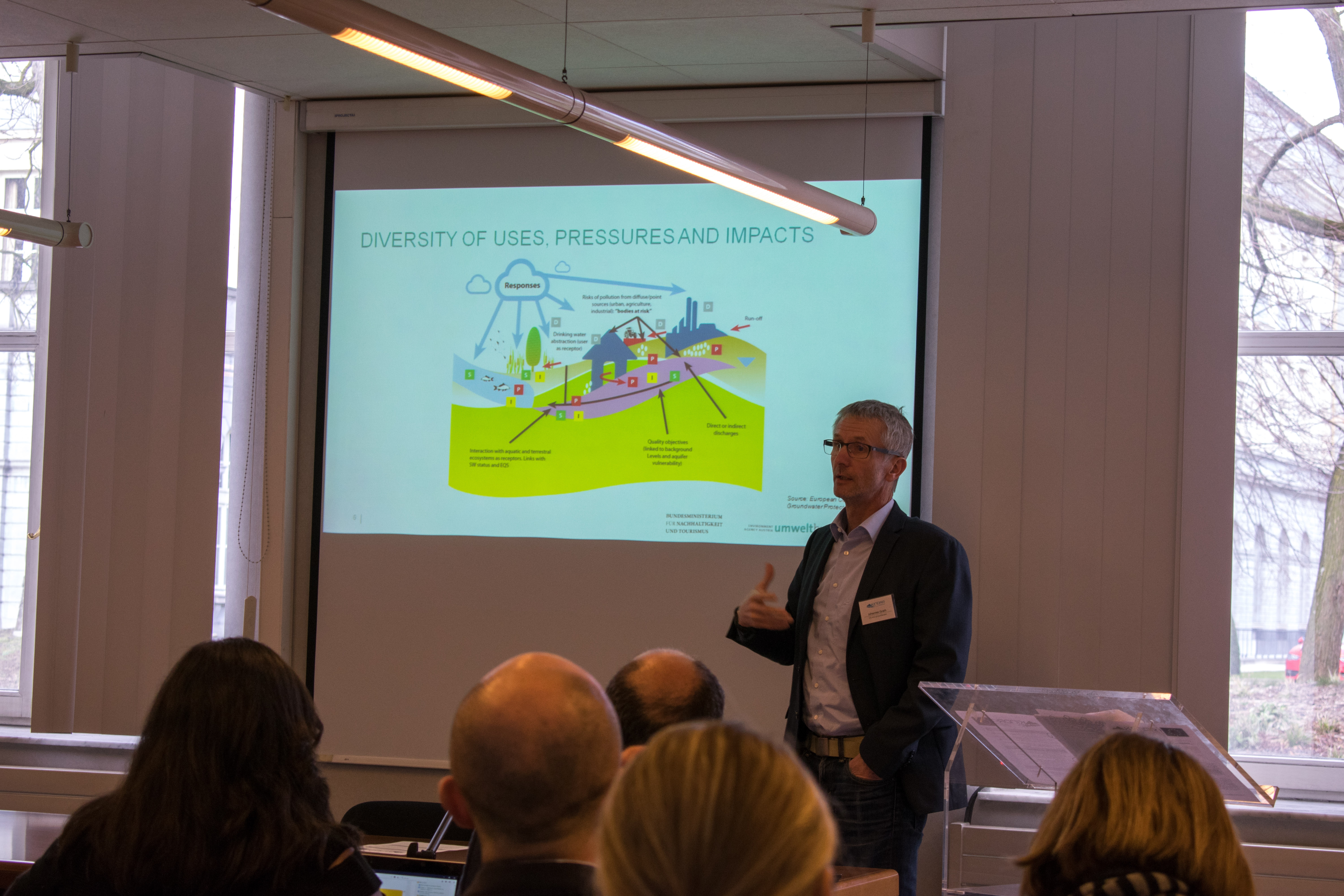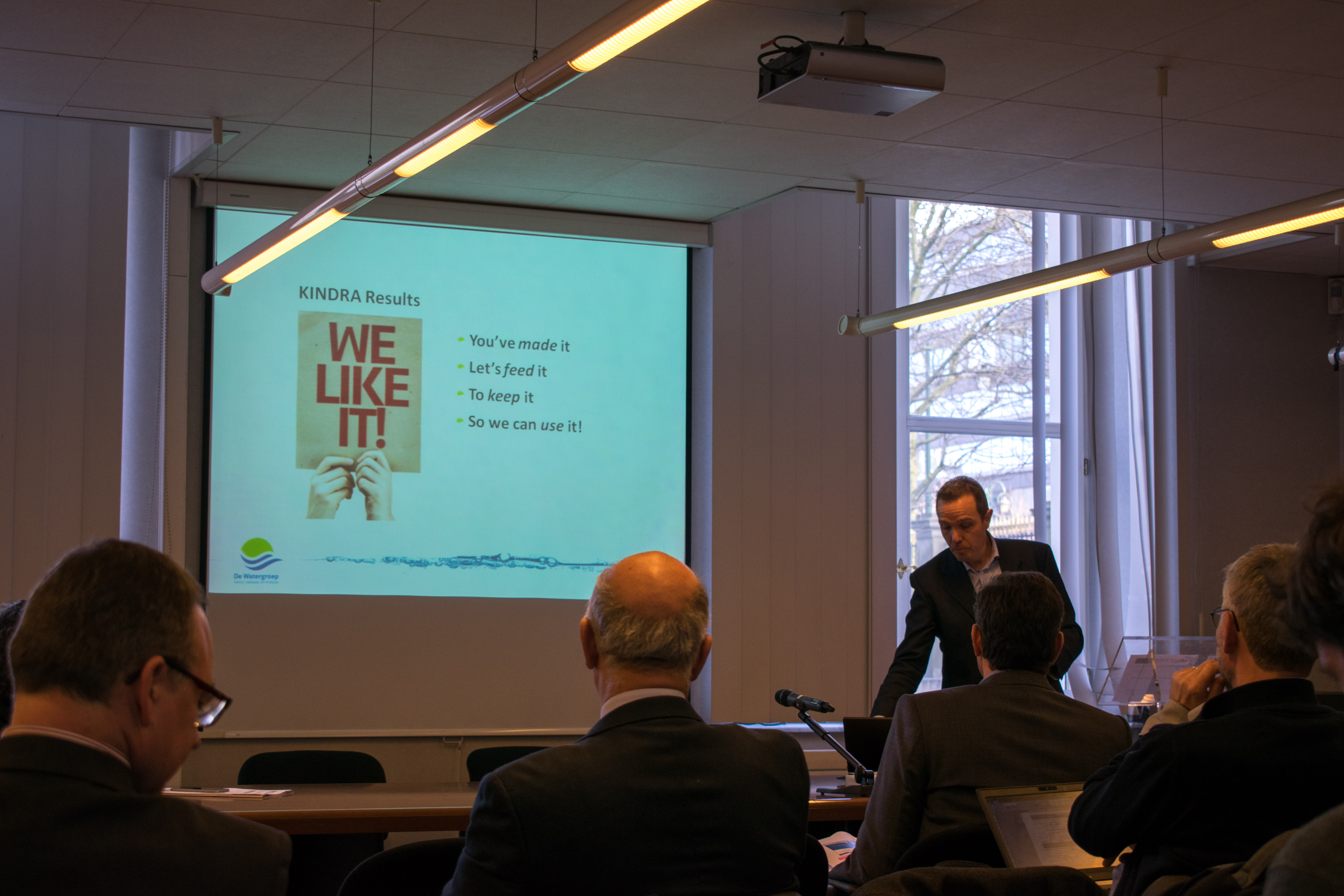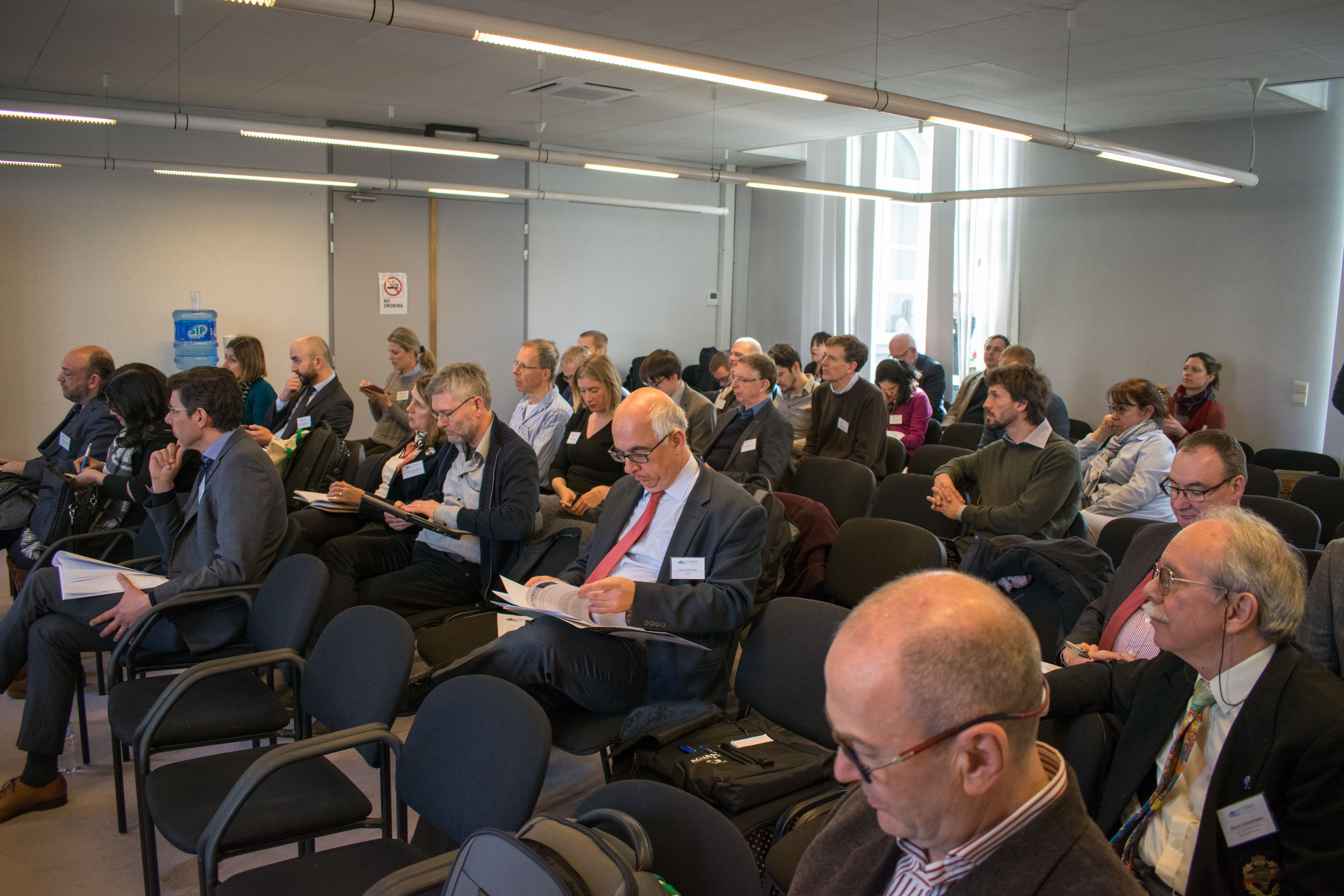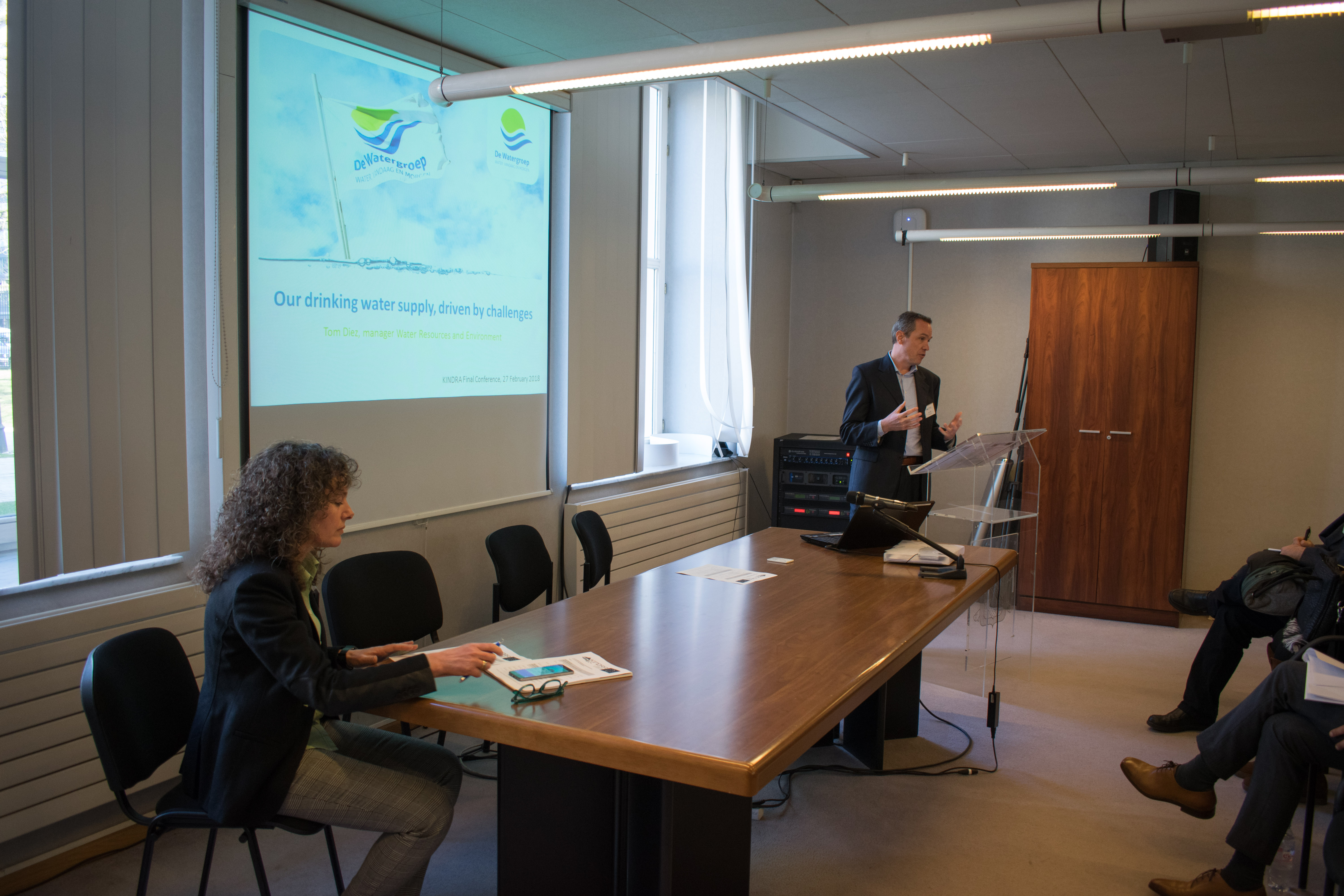KINDRA Project Final Conference
Over the past 3 years, the EU-funded KINDRA project worked on gathering and standardising groundwater knowledge and research across Europe. Work started with the EU-wide assessment of existing groundwater-related practical and scientific knowledge based on a new Hydrogeological Research Classification System (HRC-SYS), created by the project team. This classification is supported a web-service – the European Inventory of Groundwater Research (EIGR), which acts not only as a knowledge repository but also as a tool that helped identify relevant research topics, existing research trends and critical research challenges.
The project concluded with a final conference organised in Brussels on the 27th of February 2018, hosted in the Académie Royale de Bruxelles. During the conference, the consortium presented the three major outcomes of KINDRA and gathered feedback for the afterlife of the EU funded period.
The sessions with the titles “Opening Session”, “Kindra Outcomes”, “Kindra Inventory Potential Users” and “Future Opportunities” were chaired by members of Kindra’s Joint Panel of Experts and the very successful “Closing Session” was chaired by Philippe Quevauviller, Policy and Research Programming Officer at European Commission. Seventeen speakers presented their views and suggestions for the future of the EIGR and its potential users. Several members of the European Commission, as well as EASME, the International Association of Hydrogeologists and many more important stakeholders in science, research and industry were present and actively involved in Q&A and debates throughout the closing Panel Discussion.
KINDRA was run for three years by a consortium of nine partners, twenty linked third parties and ten members of the Joint Panel of Experts, making a total of twenty EU-countries collaborating.
The KINDRA team would like to publicly thank all those involved in the success of this project.
“It was an exciting experience to coordinate the KINDRA project, thanks to the active collaboration
of the project partners, of the Joint Panel of Experts and of the EC staff.
During last three years, I realized that groundwater is not only a relevant research topic and a
fundamental resource for humans and the environment, but that also its relationships with actual
societal challenges and EC policies are so important and need to be reinforced, more than I
suspected at the beginning of the project.
I hope that KINDRA realized some steps forward in pushing groundwater issues on the European agenda.
All of us did our best during the project, but additional efforts are required for the future to foster KINDRA’s long-term impact on groundwater policies.
We are ready to perform them and are confident that other stakeholders will support us.”
Marco Pettita, Project Coordinator
University of SAPIENZA, Rome
| Download our speakers’ presentations: |
| Towards a mission-oriented research and innovation policy in the EU – contribution of knowledge and science
Johan Stierna, European Commission, DG Research and Innovation, Policy Development and coordination, Unit A6 |
| The EU Groundwater Directive
Elisa Vargas, European Commission, DG Environment, Chair of EC Working Group Groundwater, Common Implementation Strategy of WFD |
| KINDRA project: aims, expectations and final results
Marco Petitta, Project Coordinator – University of Rome Sapienza |
| KINDRA Classification
Klaus Hinsby – Geological Survey of Denmark and GreenLand (GEUS) |
| KINDRA Inventory
Clint Garcia Alibrand – Environmental and Water Agency of Andalusia (REDIAM) |
| KINDRA Gaps analysis
Peter van der Keur / Klaus Hinsby- Geological Survey of Denmark and GreenLand (GEUS) |
| Our drinking water supply, driven by challenges
Tom Diez – De Watergroep, Brussels |
| EuroGeoSurveys, a contributor and user of the KINDRA inventory
Rob Ward, Water Resources Expert, Eurogeosurveys and Director of Groundwater Science, British Geological Survey |
| Activities of CIS WG Groundwater
Johannes Grath, co-Chair of EC Working Group Groundwater, Common Implementation Strategy of WFD, Umweltbundesamt |
| Water Information Network System (WINS)
Youssef Filali-Meknassi, UNESCO-IHP, Paris |
| International Association of Hydrogeologists
Teodora Szocs, Vice President of International Association of Hydrogeologists; Mining and Geological Survey of Hungary |
| SUBSOL Knowledge Environment – Potential links with KINDRA
Klio Monokrousou, National Technical University of Athens, SUBSOL |
| GeoERA information platform
Yvonne Schavemaker, coordinator – TNO Geological Survey of the Netherlands Klaus Hinsby – Geological Survey of Denmark and GreenLand (GEUS) |
| ICT4Water cluster
Lydia S. Vamvakeridou-Lyroudia, Exeter University |
| NAIAD – nature-based solutions and green/blue infrastructure
Morten Ejsing Jørgensen – City of Copenhagen |
| IGRAC, Global Groundwater Information System (GGIS)
Arnaud Sterckx – IGRAC, UNESCO |




